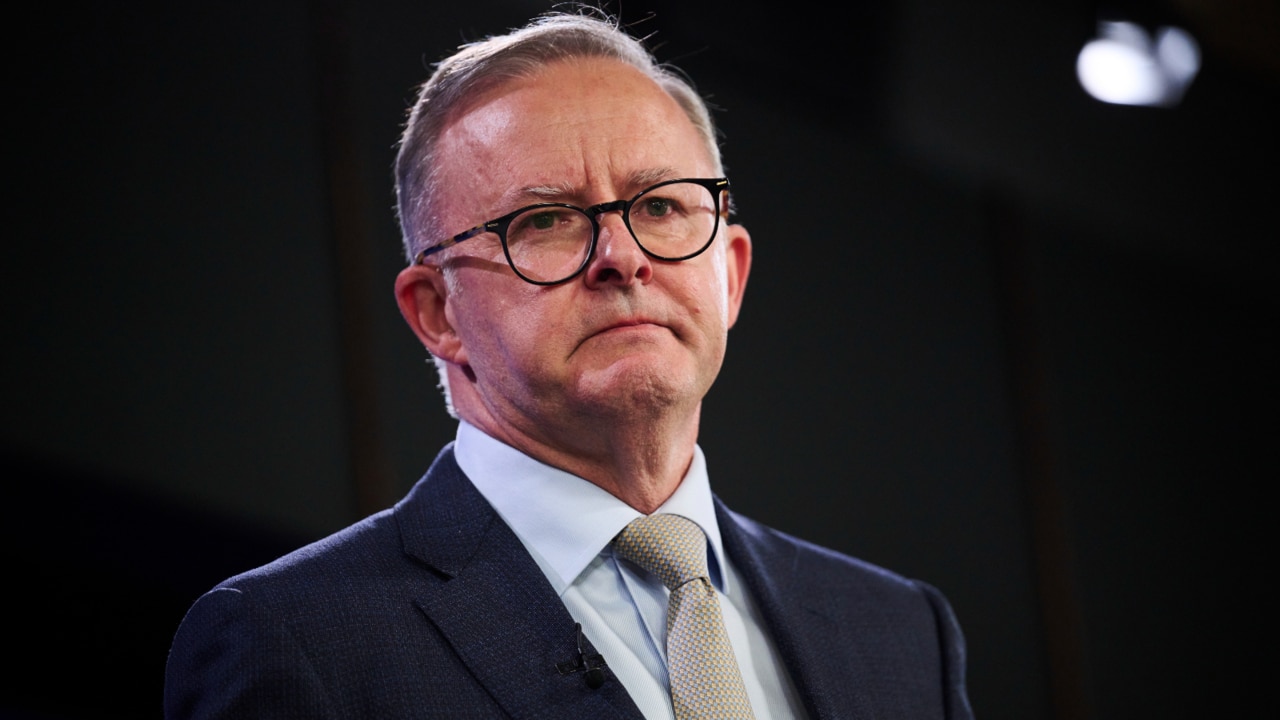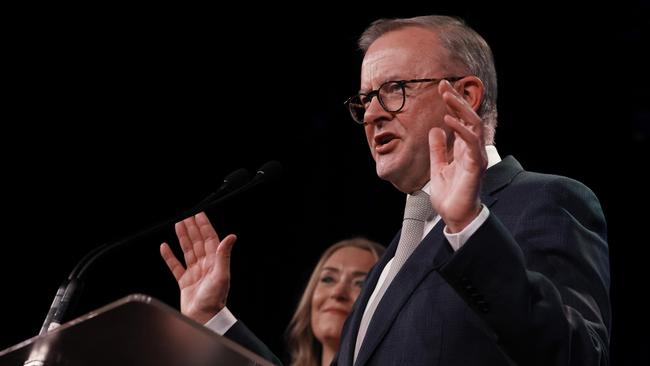
Fordham: “Will members of the voice be paid?” Albanese: “There’s no suggestion of that, Ben … Go and have a look at the Calma-Langton report.”
Fordham: “Does that mean no? Or does that mean maybe?” Albanese: “It is 260 pages of detail. It goes through a national voice, it goes through (a) regional voice …”
Fordham: “Are people going to be appointed or elected to the voice?” Albanese: “The Calma-Langton report …”
Fordham: “Just answer the question … You’re losing people when you constantly point to reports. You’re always talking about, ‘Go and read the 260-page report’. This is a radio show.”
The Yes case can ill-afford a birthday cake moment like this one. If a weak grasp of detail could finish John Hewson and his hopes of introducing a GST in 1993, it can also potentially kill the voice. Albanese lost more than his calm in his interview on 2GB last week. He lost Fordham’s listeners and conceivably lost the referendum we’ll be voting on later this year.
An opinion poll in The Daily Telegraph on Saturday found more than two-thirds of voters (68 per cent) believe the government has done a poor job in explaining how the voice would work. Asked whether they supported a voice to parliament, 30 per cent said no, while 46 per cent said they did and a further 24 per cent said they were unsure.
Even if the yes case prevails, there is precious little chance of it being “a national achievement … above politics … a unifying Australian moment” the PM says he is seeking.

The YouGov poll for The Daily Telegraph found support was divided on partisan lines, with 61 per cent of Labor and 72 per cent of Green voters in favour, compared with 31 per cent of Coalition voters. Since a referendum proposal must be agreed by a majority of voters in a majority of states, this looks in some trouble.
The proposal to make reference to Aboriginal Australians in the Constitution would likely be agreed to by a convincing margin were it to be put to a referendum by itself. Shackling that question to a nebulous, formless thing called the voice has made the job of winning the debate a whole lot harder.
Albanese’s failure to advance beyond an intellectual case to a practical one is making it harder still. Getting the woke establishment on board is the easy bit. Academia, the mainstream media and corporate Australia have backed this from the start. Yet the PM has not begun to assemble an argument capable of passing the pub test. Selling the voice to the forgotten Australians, those too busy earning livings or raising families to read the Calma-Langton report, will not be easy.
Albanese needs to run two conflicting narratives. One frames the voice as the first step on a sequential pathway of voice, treaty and truth set out in the Uluru Statement. It paves the way for changes that will radically alter the country. The second narrative frames the voice as a “necessary but modest alteration” to the Constitution, a document Albanese has taken as describing as “the nation’s birth certificate” rather than the supreme legal document that determines how power is exercised and distributed. There’ll be no third chamber, the voice is simply a “consultative body”. Parliament will still call the shots and the voice will be powerless to take up disputes in court if it thinks it is being ignored.
The danger in following Goldilocks in selecting a bowl that is neither too hot nor too cold is that neither side leaves the table replete. The Greens’ First Nations group, the self-styled Blak Greens, has declined to support the Yes case, demanding the implementation of recommendations of reports into Indigenous deaths in custody and the stolen generations. A process it calls truth-telling is integral to the establishment of the voice and will set the parameters for a treaty.

It is not an unreasonable expectation, since that is the policy Albanese took to the election. “The voice is the bedrock upon which we must build,” he wrote in an opinion article for The Australian less than four weeks before the election. “I want a voice and truth, then treaty, to be part of our national journey and our national life.” He reinforced that commitment in his victory speech on May 21 when he promised Labor will commit “in full” to the Uluru Statement from the Heart. That includes stage two, the establishment of a Makarrata commission to supervise a process of agreement-making and truth-telling between governments and Aboriginal Australians.
Faced with such radical demands from one side and conservative caution on the other, the government has decided to leave the details for another day. It is not working. The risk in avoiding legitimate questions, as the PM did last week, is that he can begin to look evasive. “The way Noel Pearson has put it, Ben,” Albanese said, “is that you are making a decision over whether there be a Sydney Harbour Bridge or not. Then you decide how many lanes it will be, which will go in what direction, what the toll will be.”
We can only hope this unfortunate analogy is not an indication of the government’s approach to infrastructure investment, or any other policy decision for that matter. A decision to proceed with such a project without knowing how many lanes there will be or which way they would be travelling would be a bridge too far for most taxpayers.
The absence of detail does nothing to dispel the sneaking suspicion that the Albanese government is pursuing a radical agenda by stealth, that it is changing Australia in incremental steps, weakening the authority of parliaments and empowering unelected bodies unconstrained by electoral mandates.
Maybe we’re jumping at shadows. Without the fine print, however, it is impossible to know for sure.
Nick Cater is executive director of the Menzies Research Centre.








“Let’s just get a few quick ones out of the way,” Ben Fordham suggested, halfway into last week’s bewildering radio interview with Anthony Albanese. “Would the voice have its own premises in Canberra?” Yes, replied the Prime Minister, “there would be some form of an office”, but matters like this would be decided in the parliament, in other words, after the referendum.